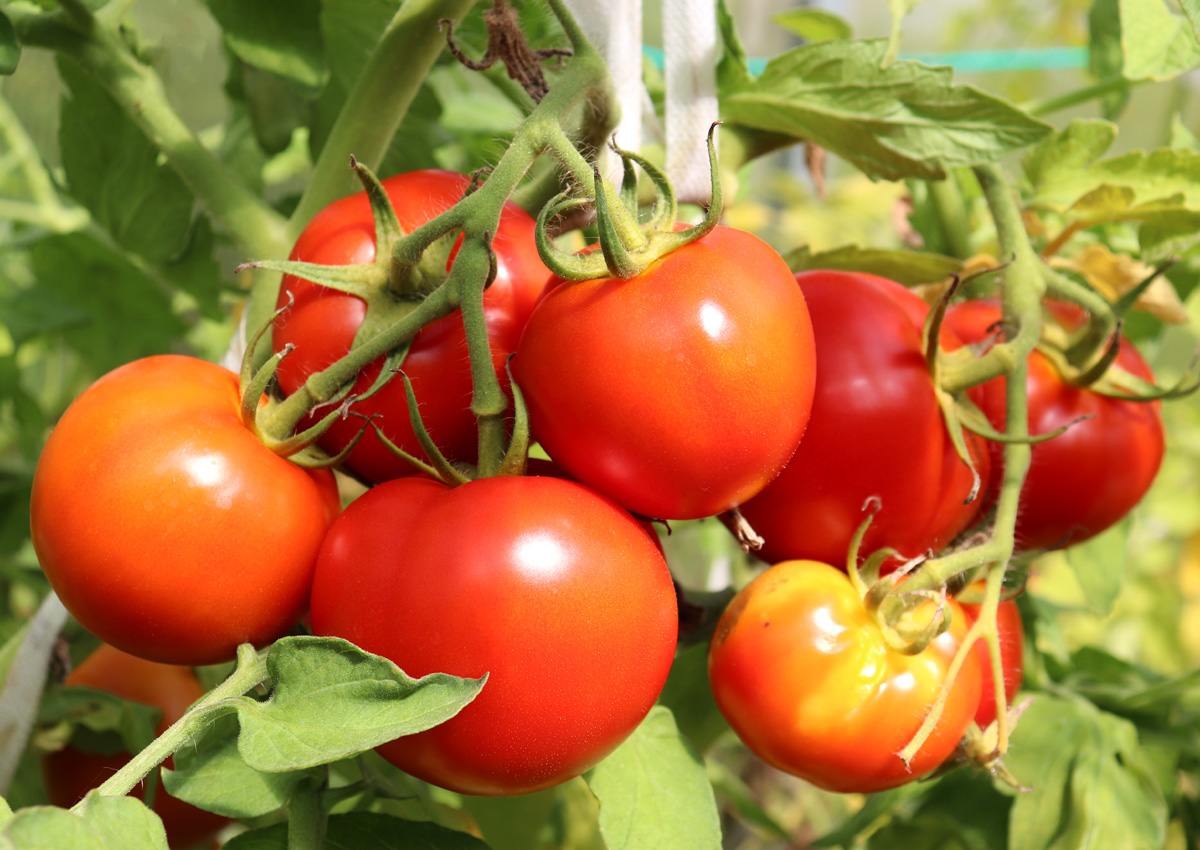
Israeli Researchers Develop Gene-edited Tomatoes that Consume Less Water
January 31, 2024| |
Using CRISPR technology, researchers from the School of Plant Sciences and Food Security at Tel Aviv University's Wise Faculty of Life Sciences were able to develop tomatoes that consume less water without affecting yield, quality, and taste.
During transpiration, plants evaporate water from their leaves. At the same time, carbon dioxide enters the leaves and is assimilated into sugar by photosynthesis. Transpiration and carbon dioxide uptake occur simultaneously through the stomata, which open and close to regulate the plant's water status. Under drought conditions, plants respond by closing their stomata to limit water loss by transpiration, but this also reduces carbon dioxide update, which leads to a decline in the production of sugar by photosynthesis.
Using the CRISPR method, the researchers induced a modification in the tomato and targeted the gene ROP9 gene. The ROP proteins function as switches, toggling between an active or inactive state. The research team discovered that there was no significant difference in the rate of water loss between the control plants and ROP9-modified plants in the morning and afternoon when the transpiration rate was lower. The plants were able to uptake enough carbon dioxide, preventing any decline in sugar production by photosynthesis even during the afternoon when the stomata were more closed in the ROP9-modified plants. They also observed that although the ROP9-modified plants lose less water during the transpiration process, there is no adverse effect on photosynthesis, crop quantity, or the amount of sugar in the fruits.
For more details, read the article in Tel Aviv University Research News.
| |
You might also like:
- Gene Editing Improves Biotic and Abiotic Stress Reponse of Tomato
- Gene Editing Creates Early Flowering Mutants of Tomato
- Sweeter Tomatoes Developed Through Gene Editing
Biotech Updates is a weekly newsletter of ISAAA, a not-for-profit organization. It is distributed for free to over 22,000 subscribers worldwide to inform them about the key developments in biosciences, especially in biotechnology. Your support will help us in our mission to feed the world with knowledge. You can help by donating as little as $10.
-
See more articles:
-
Plant
- EU Proposal for Gene-Edited Plants Gets First Green Light from Parliament
- VIB Submits Application for Field Trial of Genome-edited Maize
- Study Finds Maize Gene Vital in Pollen Fertility and Crop Yield
-
Animal
- CRISPR Improves Behavioral Choice of Zebrafish to Prey-like Visual Stimuli
- Researchers Engineered FGF2 Autocrine Signaling to Reduce High Costs in Cultivated Meat Production
- Gene Genies: Gene Editing by Filipino Scientists (Applications in Livestock and Aquaculture)
-
Health
- Novel Approach Shows Biomarkers for Development and Disease
- Resin Eliminates Coronavirus on Plastic Surfaces
-
Read the latest: - Biotech Updates (December 17, 2025)
- Gene Editing Supplement (December 17, 2025)
- Gene Drive Supplement (February 22, 2023)
-
Subscribe to BU: - Share
- Tweet

